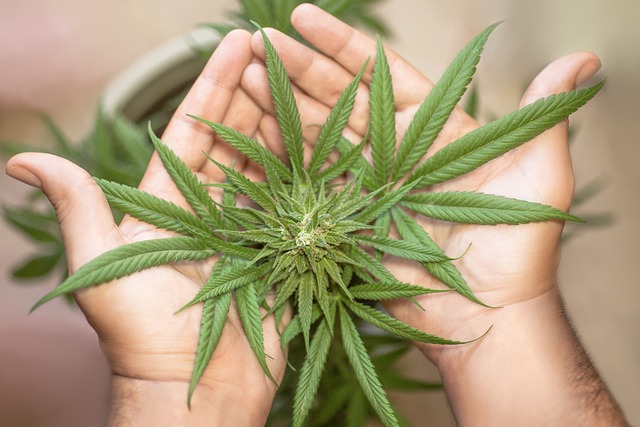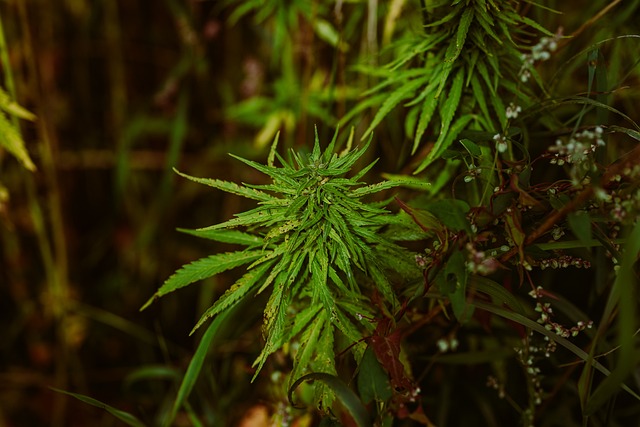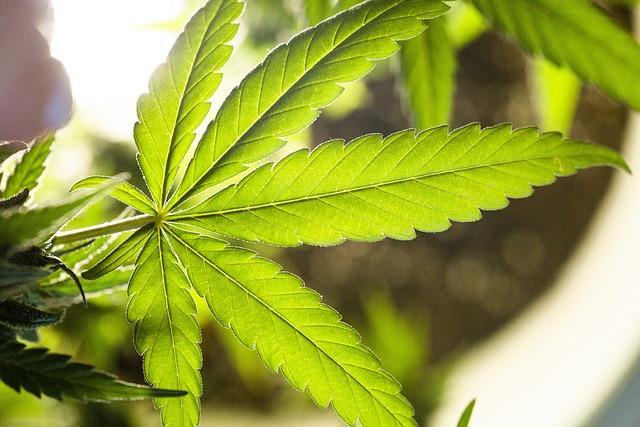Delta 9 THC and CBD are two major cannabinoids found in Cannabis sativa, each offering distinct effects and uses. Delta 9 THC is the primary psychoactive component that provides intoxicating effects, alleviates pain, suppresses nausea, and stimulates appetite, while CBD does not produce psychoactive effects but offers therapeutic benefits such as anti-inflammatory, antioxidant, and anxiolytic properties. Both have different legal statuses with hemp-derived CBD (less than 0.3% THC) being federally legal post-2018 Farm Bill, while Delta 9 THC remains a controlled substance at the federal level due to its psychoactive nature. State regulations further complicate legality, so consumers must be aware of local laws when purchasing either type.
When it comes to consumption, both Delta 9 THC and CBD gummies are available in various flavors that cater to different taste preferences—Delta 9 offering robust and potent flavors, while CBD gummies provide a subtler earthy or herbal taste. Dosing for Delta 9 THC gummies typically starts at 5-25 mg per gummy, with effects felt after 1-2 hours and lasting up to 12 hours, while CBD gummies have a broader dosing range from 5-25 mg per gummy, with effects felt after 3-6 hours. Understanding the onset, duration, and legal considerations of each is crucial for consumers looking to navigate the delta 9 bud vs CBD bud landscape effectively. Users should choose between Delta 9 THC and CBD products based on their specific health goals, desired effects, taste preferences, and local cannabis regulations.
Exploring the nuanced world of edibles, this article delves into the distinct offerings of Delta 9 THC and CBD gummies. From their varying effects to legal considerations, we provide a comprehensive comparison. Users often ponder between delta 9 bud vs CBD bud for diverse reasons, including potency, dosage, and therapeutic benefits. Our exploration covers the flavorful spectrum that caters to individual tastes, ensuring you make an informed choice. Join us as we navigate the differences and similarities of these cannabinoid-rich treats, guiding you through a balanced understanding of their impact and usage.
- Understanding Delta 9 THC and CBD Gummies: An Overview
- Potency and Effects: Delta 9 THC vs CBD Gummies Differences
- Dosage and Onset of Effects: Timing Your Experience with Delta 9 and CBD Gummies
- Legality and Regulation: Navigating the Legal Landscape for Delta 9 and CBD Products
- Medical and Therapeutic Uses: Exploring the Benefits of Delta 9 THC and CBD Gummies
- Flavor Profiles and Consumer Preferences: Tasting the Difference in Delta 9 and CBD Gummies
Understanding Delta 9 THC and CBD Gummies: An Overview

Delta 9 tetrahydrocannabinol (THC) and cannabidiol (CBD) are two prominent cannabinoids found in the Cannabis sativa plant, each offering distinct effects and therapeutic potential. THC, most notably found in the ‘delta 9 bud’ as opposed to CBD-rich ‘CBD bud’, is known for its psychoactive properties, inducing a euphoric high that can alleviate pain, stimulate appetite, and provide relief from various conditions. The effects of THC are often desired for recreational use or for medical purposes where such effects are beneficial. On the other hand, CBD, abundant in ‘CBD bud’, does not produce a high but has been widely recognized for its calming and anti-inflammatory properties, as well as its potential to treat epilepsy, anxiety, and chronic pain without the mind-altering effects of THC.
Gummies infused with either Delta 9 THC or CBD offer a discrete and palatable way to consume these cannabinoids. These edibles are carefully formulated to ensure precise dosing, making them a popular choice among consumers looking for controlled and consistent experiences. When comparing Delta 9 THC gummies to CBD gummies, it’s crucial to consider the desired effects: those seeking the psychoactive experience will prefer Delta 9 THC gummies, while individuals looking for wellness support without intoxication may opt for CBD gummies. Both types of gummies can be potent and should be used responsibly according to local laws and individual tolerance levels. Understanding the nuances between Delta 9 THC and CBD buds is essential when selecting the right gummy for one’s needs, whether it’s for medicinal or recreational purposes.
Potency and Effects: Delta 9 THC vs CBD Gummies Differences

Delta 9 tetrahydrocannabinol (THC) and cannabidiol (CBD) gummies offer distinct experiences for consumers due to their unique chemical compositions. When comparing delta 9 THC vs CBD gummies, the primary difference lies in their potency and effects on the body. Delta 9 THC gummies contain the psychoactive component of cannabis, leading to a ‘high’ characterized by euphoria, altered perception, and relaxation or sometimes impairment depending on dosage. This potent effect is due to THC’s interaction with the body’s endocannabinoid system, particularly the CB1 receptors found throughout the brain and nervous system. In contrast, CBD gummies, which lack significant psychoactive effects, are celebrated for their therapeutic properties. They may help alleviate anxiety, pain, and inflammation without the ‘high’ associated with delta 9 THC. The effects of CBD are more subtle and are believed to influence a broader range of receptors beyond just the cannabinoid receptors. Users often report feeling calm and focused when consuming CBD gummies. In terms of dosage, both types of gummies should be approached with care, as their impact can vary widely between individuals based on tolerance, metabolism, and specific physiological factors. For those seeking the recreational effects of delta 9 THC bud vs CBD bud, it’s important to understand the legal status of these products in their region, as well as to consume them responsibly. Conversely, those looking for wellness benefits might find more value in the non-psychoactive properties of CBD gummies.
Dosage and Onset of Effects: Timing Your Experience with Delta 9 and CBD Gummies

When exploring the effects of Delta 9 gummies compared to those containing CBD, understanding dosage and the onset of effects becomes crucial for an optimized experience. Delta 9 THC bud gummies, known for their psychoactive properties, typically have a standard dosing range that can vary from one to five milligrams of THC per gummy, depending on the user’s tolerance and desired intensity. It’s recommended to start with a lower dose and gradually increase it as needed, ensuring a measured and comfortable experience. The onset of effects for Delta 9 gummies usually begins within 30 minutes to 2 hours after ingestion, with peak effects felt around 1 to 4 hours post-consumption. This slower onset is due to the digestive process, where the gummy must pass through the liver before THC reaches the bloodstream, resulting in a more prolonged and often more potent experience.
On the other hand, CBD bud gummies offer a distinctly different profile. They contain cannabidiol (CBD), a non-psychoactive compound that interacts with the body’s endocannabinoid system to provide various therapeutic benefits. The dosing for CBD can vary widely, typically ranging from five to twenty-five milligrams per gummy, as it does not induce intoxication. The onset of effects for CBD gummies is also slower than Delta 9 due to the same digestive process. Users may begin to feel the calming or relaxing effects within one to two hours, with the peak experience occurring around three to six hours after ingestion. The duration of both Delta 9 and CBD gummies’ effects can last from four to twelve hours, making it important to consider the timing of your consumption based on when you want the effects to occur and subside. Timing your intake with meals or on an empty stomach can influence the speed at which these compounds are absorbed and metabolized, further affecting the overall experience. Whether you’re looking for the psychoactive high of Delta 9 THC bud gummies or the therapeutic benefits of CBD bud gummies, understanding how dosage and timing affect your experience is key to a personalized cannabis edible journey.
Legality and Regulation: Navigating the Legal Landscape for Delta 9 and CBD Products

In the realm of cannabis-derived products, discerning consumers are increasingly interested in understanding the legal framework surrounding Delta 9 THC gummies versus CBD gummies. As of recent legislative changes, both Delta 9 and CBD products exist within a complex tapestry of regulations that vary from state to state across the United States. While CBD products derived from hemp with less than 0.3% THC are federally legal under the 2018 Farm Bill, Delta 9 THC, the primary psychoactive component in cannabis, remains a controlled substance under federal law but is legal in some states for medical and recreational use. This discrepancy necessitates careful consideration by both producers and consumers to navigate these legal waters. When comparing Delta 9 bud to CBD bud, it’s crucial to recognize that the legality of each type of product is not uniform across jurisdictions. Consumers must be well-versed in their local laws before purchasing or using these products to avoid legal repercussions. Additionally, regulatory bodies at the federal and state levels continue to evolve their policies regarding cannabis products, which can affect availability and compliance requirements. As such, staying informed about the latest legislation and regulations is essential for anyone involved with Delta 9 and CBD markets. Consumers should prioritize purchasing from reputable sources that provide transparent labeling and adhere to state-specific guidelines, ensuring a legal and safe experience with these products.
Medical and Therapeutic Uses: Exploring the Benefits of Delta 9 THC and CBD Gummies

Delta 9 tetrahydrocannabinol (THC) and cannabidiol (CBD) gummies offer a diverse range of medical and therapeutic benefits, each with unique properties that can address various health conditions. Delta 9 THC gummies are renowned for their psychoactive effects, which can alleviate pain, reduce nausea and stimulate appetite. These gummies may be particularly beneficial for individuals experiencing chronic pain or undergoing treatments like chemotherapy where such side effects are prevalent. The psychoactive nature of Delta 9 THC interacts with the body’s endocannabinoid system, modulating neurotransmitters and producing a relaxing and analgesic effect. On the other hand, CBD gummies, devoid of psychoactive properties, offer therapeutic benefits without the ‘high’ associated with Delta 9 THC. They are celebrated for their anti-inflammatory, antioxidant, and anxiolytic effects, making them a preferred choice for those seeking relief from anxiety, depression, or inflammatory conditions like arthritis. The comparison between Delta 9 THC bud vs CBD bud gummies is not merely about the presence or absence of psychoactive effects but also about the specific symptoms and conditions one aims to address. Users often find a synergistic effect when using both types of gummies in what is known as the ‘entourage effect,’ where the combined effects of cannabinoids and terpenes are greater than their individual effects. This holistic approach to well-being can be a game-changer for those navigating the complex world of medical marijuana. When choosing between Delta 9 THC and CBD gummies, it’s essential to consider the specific therapeutic needs and desired outcomes, as well as local regulations regarding cannabis products.
Flavor Profiles and Consumer Preferences: Tasting the Difference in Delta 9 and CBD Gummies

Delta 9 gummies and CBD gummies offer distinct flavor profiles that cater to different consumer tastes, influencing preference based on individual sensory experiences. The flavor landscape of delta 9 gummies is often characterized by a potent and robust taste due to the presence of THC, the primary psychoactive component in cannabis. Manufacturers of delta 9 gummies typically focus on enhancing these flavors to provide a memorable and satisfying experience for users who seek the intoxicating effects associated with delta 9. The range of flavors can vary from classic fruity tastes to more elaborate, indulgent options like chocolate or mint, each designed to complement the unique taste of the delta 9 compound.
In contrast, CBD gummies are crafted for those who prefer products that offer wellness benefits without the psychoactive effects. These gummies tend to have a subtler flavor profile, allowing the natural terpene flavors of the hemp plant to shine through, often resulting in earthier or herbal tones. Manufacturers aim to create a harmonious balance between the inherent hemp flavors and the desired sweetness, ensuring that the CBD gummies are palatable for a broader audience. Consumers with a preference for these products typically appreciate the clarity of taste and the focus on well-being that CBD gummies provide. When comparing delta 9 bud vs CBD bud, it’s evident that the flavor differences extend beyond just the edibles; the distinct aromatic profiles of each cannabinoid type also play a significant role in shaping consumer preferences and experiences.
When considering the consumption of edibles for their cannabinoid content, understanding the nuanced differences between Delta 9 THC and CBD gummies is key. This article has delved into the distinct potency and effects each offers, ensuring that consumers are well-informed on how to time their experiences to optimize their desired outcomes. It’s also explored the intricacies of legality and regulation surrounding these products, providing clarity in a complex landscape. The medical and therapeutic applications of both Delta 9 THC and CBD gummies have been examined, highlighting their unique benefits. Additionally, the article has addressed flavor preferences, allowing users to make choices based on personal taste. Ultimately, whether one opts for the psychoactive properties of Delta 9 THC or the therapeutic potential of CBD, understanding the differences between these buds can lead to a more satisfying and meaningful cannabis experience.
